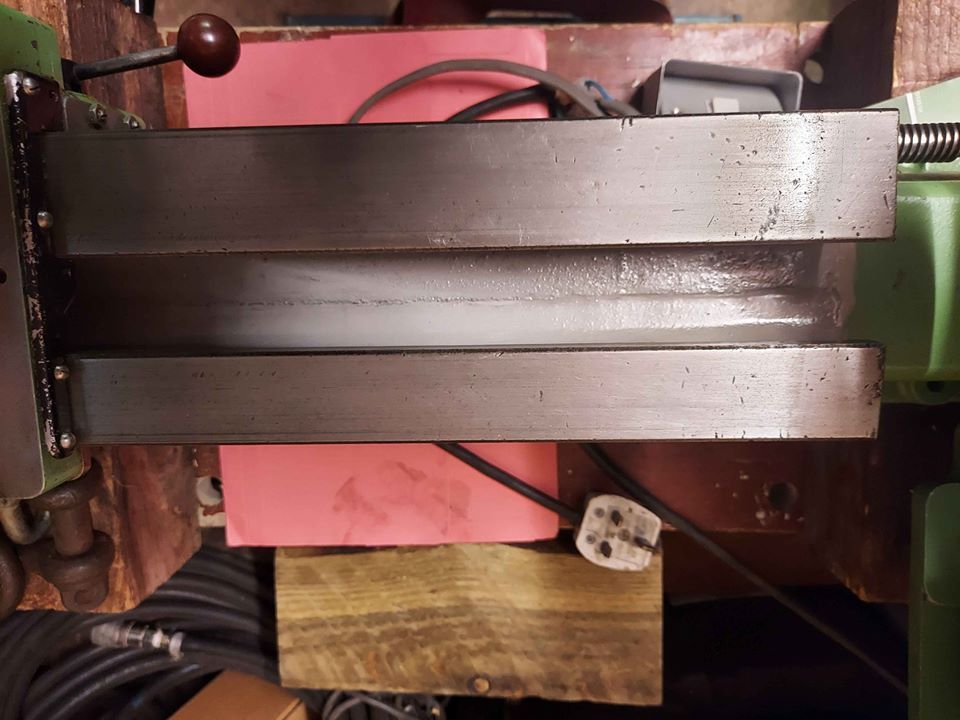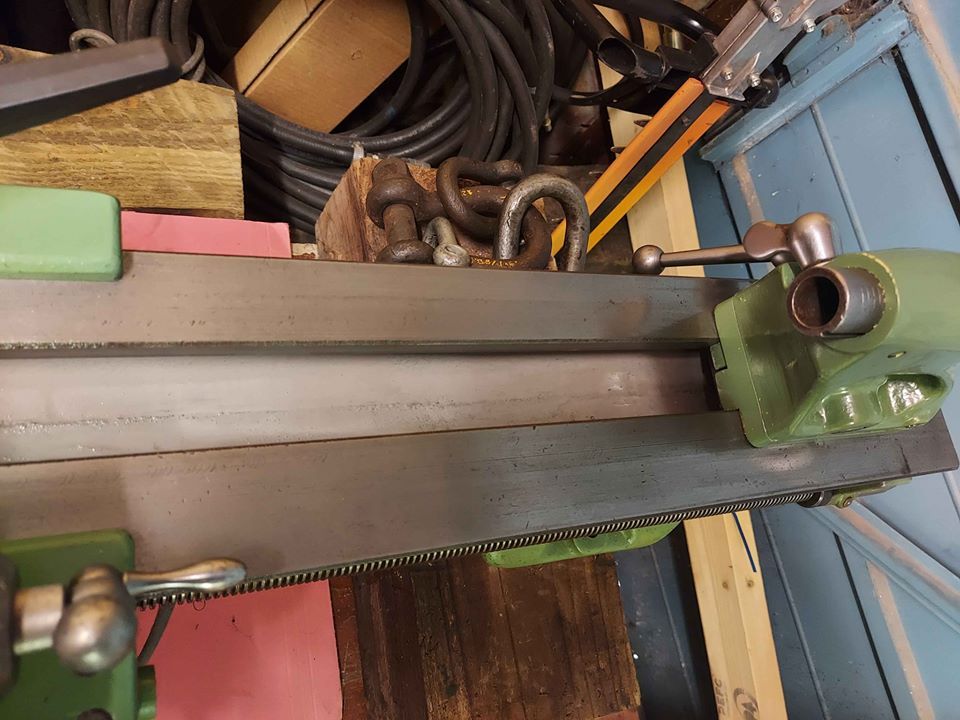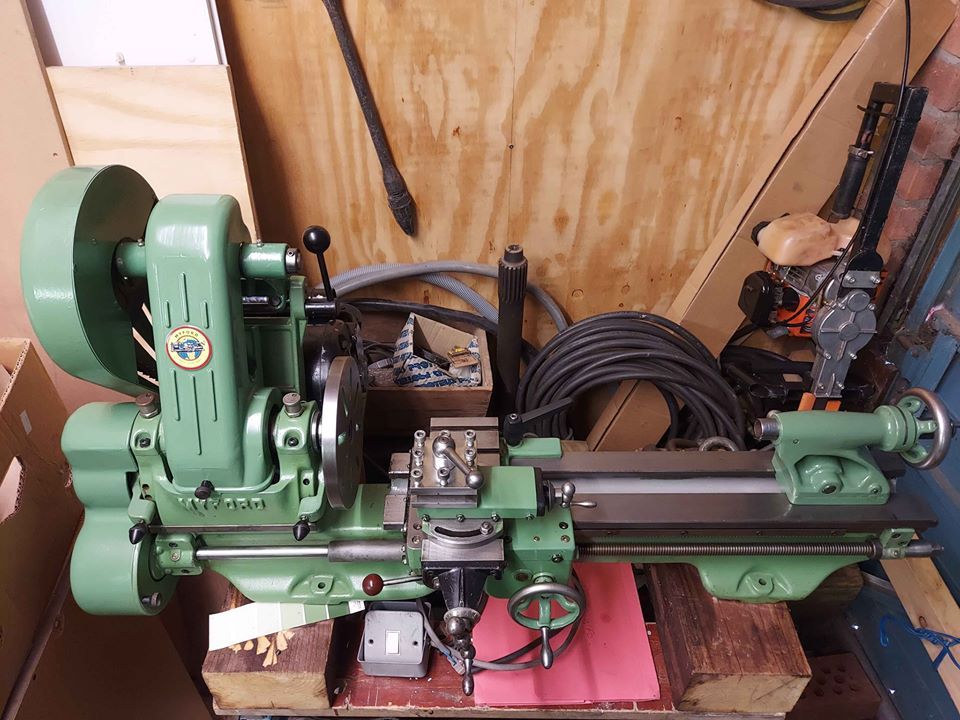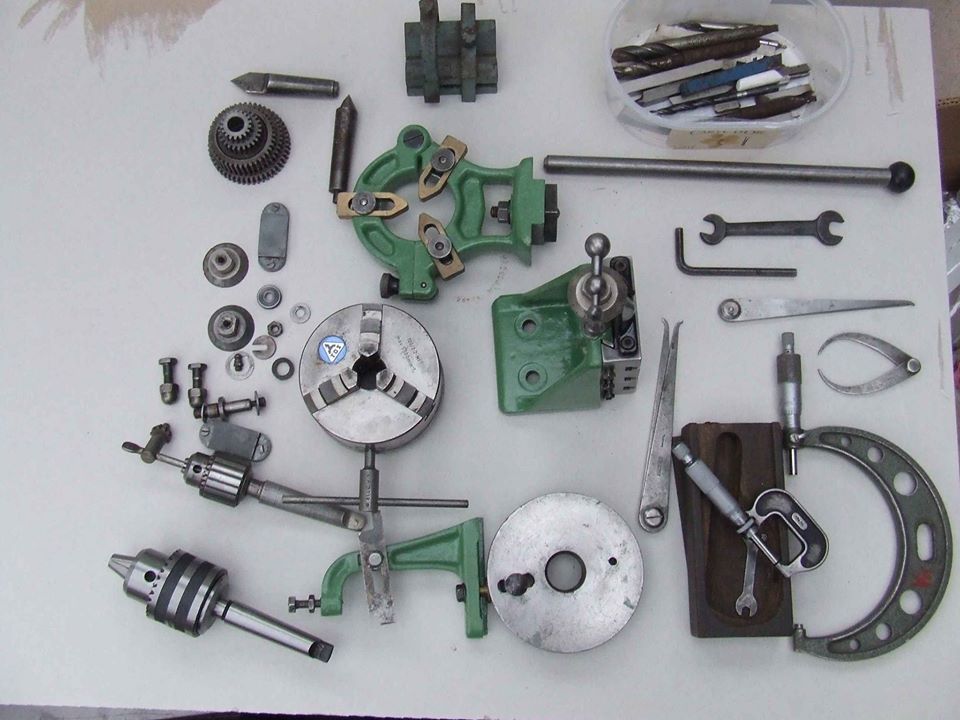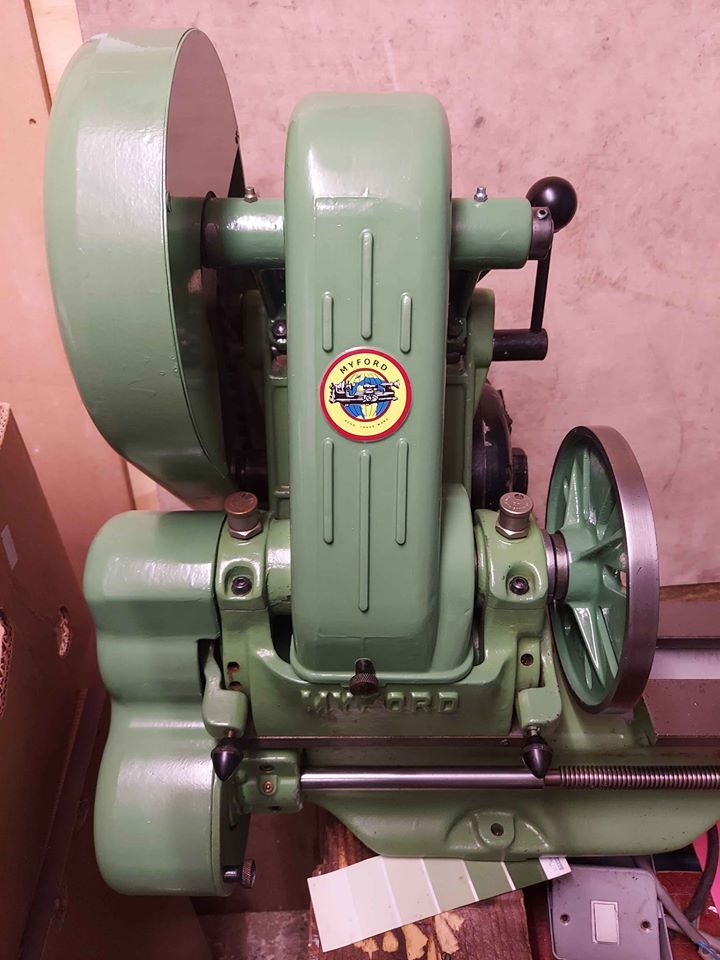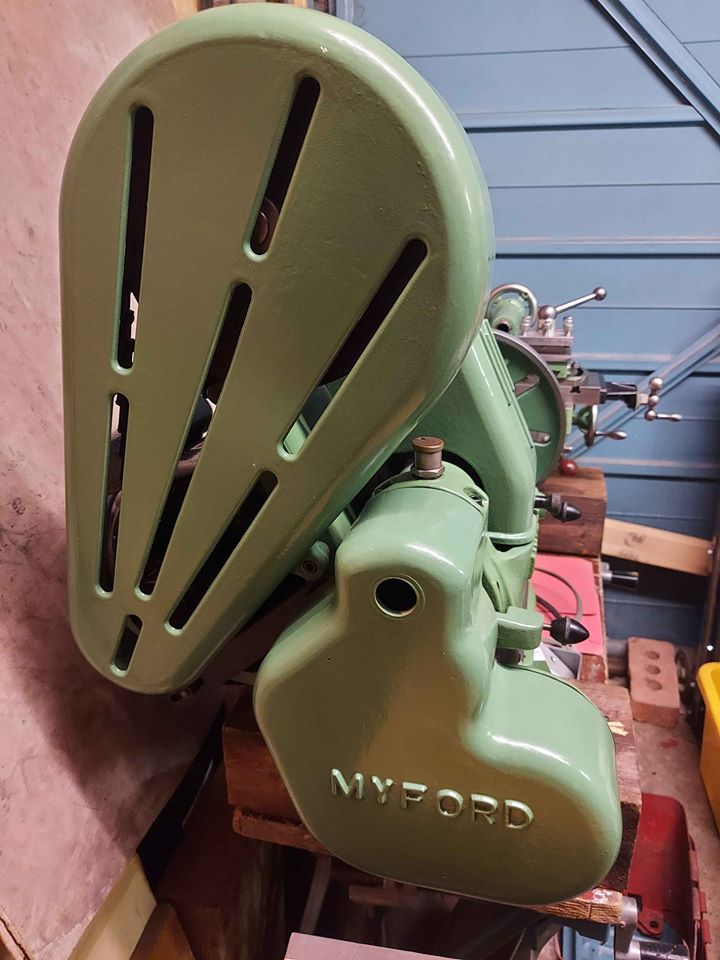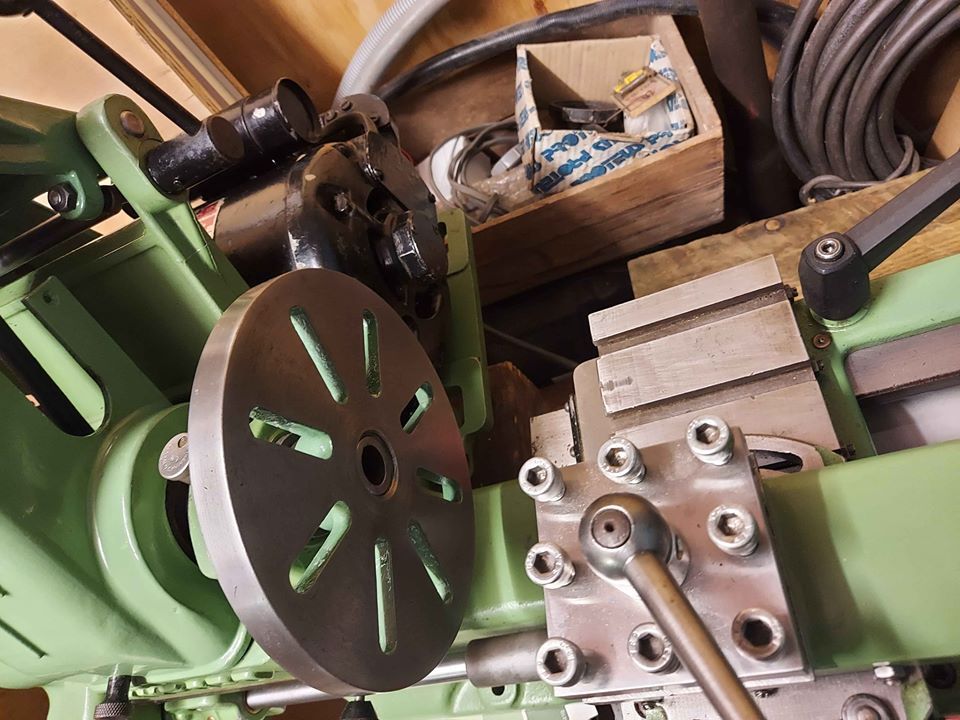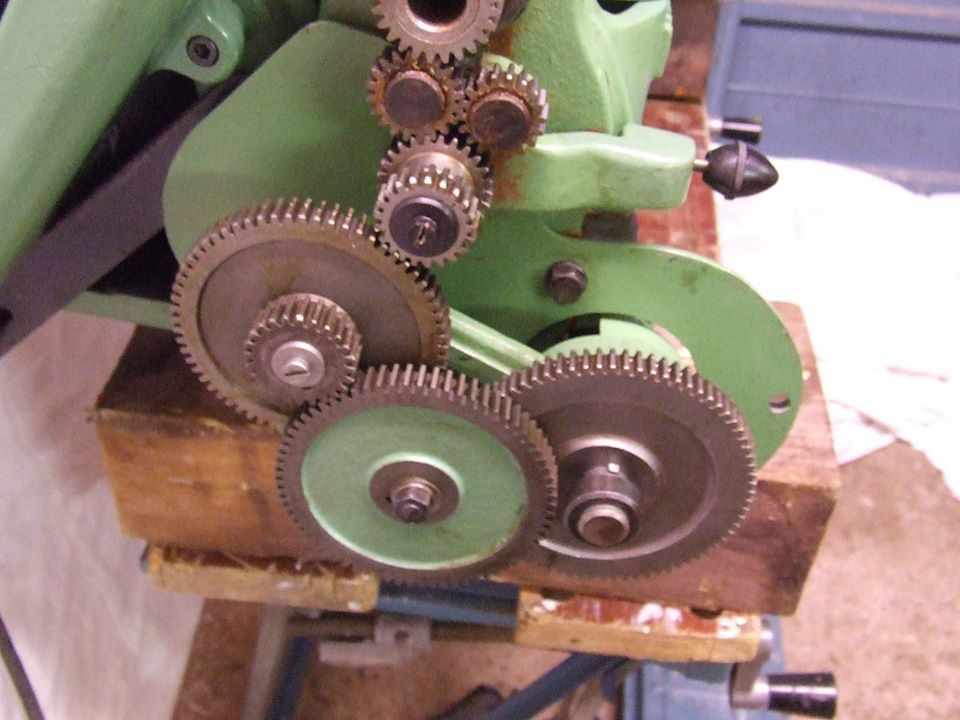Well Jacob, if you want British and don't have any expertise you have to take the risk. Nothing said on this forum can confirm if that's a good-un or a wreck. Looks OK to me, maybe too clean, but it's difficult to spot anything other than gross faults from pictures. Bearings shot? Motor? Electrics? Cracks? Half-nut trashed? Bent leadscrew? Cannibalised? Bodged? Spindle and headstock OK? Nobody knows.
Worst case it's a sows ear tarted up for sale, best case it's in clean good order. Myfords come with a few risks. As they were justly good performers in the last century people pay premium money for them, not always wisely. The awful truth is Myford lathes are ageing, and that rarely ends well! Many have been cherished by careful owners, others have been flogged, badly maintained, and otherwise mistreated. And with every passing year the chance of misadventure rises.
My view – buying second-hand forget British, Chinese and brand preferences: condition is everything. Although lots of lathe issues can be fixed cheaply, some problems – like a bed regrind – are expensive, and some lathes absolutely aren't worth fixing. The best way to spot issues is to see the lathe cut metal, but it's hard for inexperienced beginners to tell the difference between duff machine and learner driver mistakes. But motors that won't start, lack power or smoke, tingles, controls that won't engage or work smoothly, wobbles and horrible noises are all red flags waving.
Can the seller demonstrate it? Reluctance to switch on is often a danger sign.
I'm afraid if you want a Myford that one is no more risky than many others; you might as well buy it. The price isn't insane, and might be bargained down if it can't be powered up.
The advantage of buying new is that bad machines can be swapped or refunded. Chaps get worked up about 'quality' but to me it's about managing purchase risk. What's your attitude to a moderate gamble? If the Myford is too scary, walk away. But if brave, financially robust and prepared to refurbish it yourself, that machine could be a good deal. For some mending old machines is the hobby, others hate that and just want to make things. Quite a few of us do both. How do you feel?
Sadly I don't know of a way of buying second-hand machine tools at bargain prices and guarantee them arriving in good nick. Much easier to identify satisfactory second-hand lathes after learning to drive one. I saw my Chinese lathe as worth it for the experience, and was prepared to write it off. As it happens, I'm happy with it. That Myford could be your way in – even if it has warts.
The thing I most regret about this hobby is the time I wasted dithering about which machine to buy.
Dave
 Bazyle.
Bazyle.

